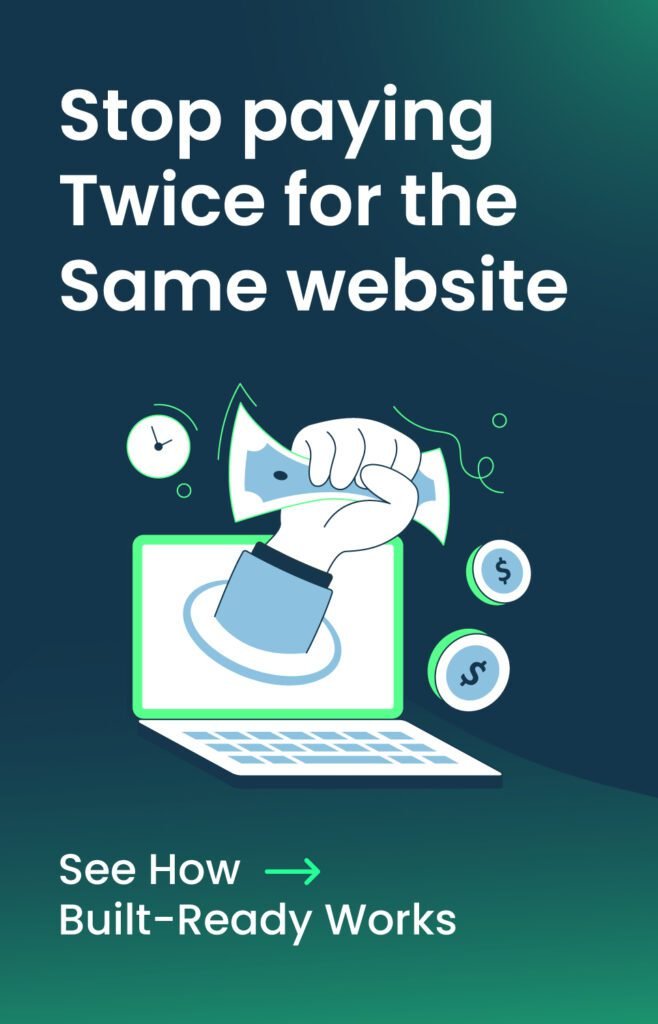Is your law firm’s website easy to find online? If not, you’re missing out on potential clients. With so many people turning to Google for legal help, your law firm must show up when they search.
SEO (Search Engine Optimization) helps improve your website’s visibility on search engines. With SEO for lawyers, you can easily achieve your goals.
In this blog, I will explain to you through simple steps to help your law firm rank higher on Google and reach more clients in your area.
So let’s begin a discussion with the definition of SEO for lawyers.

What is SEO for Lawyers?
SEO for lawyers helps people find your law firm’s website when they search online. The goal is to make sure your website shows up on the first page of Google when someone looks for legal help near them.
Start by choosing the right keywords. These are the words people use when they need a lawyer. Use those words in your website content so Google can understand what you do.
Local SEO is important too. This makes sure your website appears when people search for lawyers in your area. Setting up a Google Business Profile is a good start.
Backlinks also help. These are links from other websites to yours, which can improve your site’s ranking.
Make sure your website loads fast and is easy to use. When everything is set up right, more people will find your site and contact you for help.
Why Does SEO Matter for Law Firm Websites?
Most people search online when they need a lawyer. If your law firm doesn’t show up in those searches, you’re missing out on potential clients. Old forms of advertising like phone books and billboards don’t work as well anymore.
Getting Found Online
To make sure people find your law firm, you need to make your website easy for search engines to find. SEO, or Search Engine Optimization, helps your website appear when someone is searching for legal help. Using the right keywords makes your website show up higher in search results.

The Importance of Local SEO for Lawyers
Local SEO is a must for law firms. Most people want a lawyer nearby, so you need to make sure your website shows up when they search for legal help in your area.
Using Local Keywords
Using local keywords can help your website stand out. Instead of just saying “personal injury lawyer,” use something like “personal injury lawyer in [your city].” This makes it easier for people in your area to find your website.
Can SEO Benefit Law Firms?
Yes, SEO can help law firms. It brings more people to your website. If your site isn’t showing up in search results, it’s like having a store with the doors closed. SEO opens those doors and helps people find you.
More Visitors, More Clients
SEO helps your website show up on Google. Unlike paid ads, SEO keeps bringing in visitors over time. When your site ranks high, people who need legal help will find you.
Targeted Visitors
SEO brings in people who are already looking for legal services. They’re more likely to contact you because they need help with something you offer.
Quality Over Quantity
SEO is about attracting the right people. It’s not just about getting more visitors, but getting the ones who are most likely to become clients.
Cost-Effective
SEO is a smart, cost-effective way to grow your business. This is different than paid ads, which stop working once you run out of money, SEO keeps bringing in visitors without ongoing costs.
Long-Term Results
SEO helps you get steady traffic for a long time. Once your website ranks well, it keeps bringing in potential clients, giving your law firm long-term benefits.

Key Google Ranking Factors for Law Firm SEO
To get your law firm’s website to rank higher on Google, here are the main things you need to focus on:
1. Quality Content
Google favors websites that offer helpful and relevant content. Your website should answer the questions people are asking.
Make sure your content speaks to what your potential clients are looking for. This could be information about a legal issue or the services you offer.
2. Backlinks
Backlinks are links from other websites to yours. Google sees these as votes of confidence. The more quality websites that link to you, the more authority your site has. Try to get links from trusted sources to improve your site’s ranking.

3. User Experience (UX)
Google values websites that are easy to use. Your website should load quickly and be easy to navigate. It should also work well on mobile devices. If users enjoy their experience on your site, they’re likely to stay longer. This helps improve your ranking.
4. Mobile-Friendly Design
Since many people search on their phones, Google now prioritizes mobile-friendly websites. If your site isn’t optimized for mobile, it could hurt your ranking. Make sure your website works well on both phones and tablets.
5. Technical SEO
Technical SEO ensures your website runs smoothly. This includes having a secure website (HTTPS), fast load times, and proper website structure. Google rewards websites that are secure, fast, and easy for search engines to understand.
SEO Basics Every Lawyer Should Know
SEO helps your law firm’s website show up in search results. Here are five simple tips to improve your online presence:
On-Page Optimization
This means using the right keywords, writing clear descriptions, and adding helpful content to your website. It helps search engines find you easily.
Off-Page Optimization
Off-page SEO means getting other websites to link to yours. When trusted sites link to you, Google sees your site as reliable, which helps more people find you.
Mobile-Friendly Design
Make sure your website works well on phones. Google likes mobile-friendly sites, and many people search for lawyers on their phones.
Fast Loading Speed
A slow website can make people leave. Google also prefers sites that load fast, so having a quick site helps keep visitors and improves your ranking.
Quality Content
Create helpful, clear content that answers questions people have about legal issues. Good content makes your site more likely to show up in search results.
Essential Requirements for SEO Success
Here I will share the top 6 essential requirements for SEO Success. Soc the requirements are:
1. Keyword Optimization
Research and use the right keywords for your site. Make sure to add these keywords naturally in your content so search engines can easily understand what your page is about.
2. Page Structure
Break your content up with headings and subheadings. This makes it easier for both people and search engines to navigate your page.
3. Click-Worthy Meta Descriptions
Write short, catchy descriptions for your pages. A good meta description can encourage more people to click on your page when it appears in search results.

4. Internal and External Links
Link to other pages on your website and to trusted external websites. This helps people find more information and boosts your site’s credibility.
5. Optimized URL Structure
Keep your URLs simple and clear, using keywords that tell both users and search engines what the page is about.
6. Quality, Optimized Images
Use clear, high-quality images with descriptive names and alt tags. This makes it easier for search engines to understand your images and improves the user experience.
Measuring Your SEO Campaign’s Performance
Measuring how your SEO is performing means focusing on key factors like traffic, rankings, and clicks. First, check your organic traffic in Google Analytics to see if it’s growing.
Next, track your keyword rankings to see if your pages are moving up in search results. Rankings are important, but they don’t tell you everything.
Also, check impressions and clicks in Google Search Console. If impressions go up but clicks don’t, you might need to update your titles or descriptions.
You can also use tools like Semrush to see how much your organic traffic is worth compared to paid ads. By tracking these numbers, you’ll know what’s working and what needs improvement.
Important Takeaways of SEO for Lawyers
Tools you can consider as important takeaways for SEO for lawyers. Using the right tools can make a big difference in improving your SEO strategy. So the tools are:
Google Search Console
This free tool helps track your website’s performance. Google Search console also helps you fix issues so your content can get found on Google search results.
Localo
Localo works with your Google Business Profile. It helps improve your local search presence and protects your reputation online.
Trustpilot
Trustpilot helps you display positive reviews. This boosts your SEO and helps attract new clients.

Ahrefs
Ahrefs helps with backlink analysis and keyword research. It can show what’s working for your competitors and help improve your strategy.
SEMrush
SEMrush helps you track your keyword rankings and check on-page SEO. It also helps you analyze competitor strategies for better results.
Common Questions Answered About SEO for Lawyers
1. Should I hire an SEO agency for my law practice?
You don’t need to hire an agency to get started with SEO. But if you don’t have time or find SEO complicated, an agency can help. They’ll take care of the technical details and ensure new content is posted regularly. If you are looking for the best SEO agency, go for The Ant Firm, Ltd to get the best support.
2. How long does it take to see SEO results for my law firm?
SEO results usually take 6-12 months. If you don’t see any improvement after a year, it might be time to try a new approach or get professional help.
3. How much does legal SEO cost?
SEO costs can vary. Hiring an agency may cost $1,000 to $20,000 per month, depending on the competition and your goals. Doing it yourself is cheaper but requires more time and effort.
4. Can I do SEO myself for my law firm?
Yes, with the right tools like Surfer, you can do your SEO. These tools help with keyword research, writing content, and other SEO tasks.
5. Will SEO work immediately for my law firm?
SEO takes time. It’s a long-term strategy, so be patient. Stick with it, and you’ll start seeing results.
6. What SEO tools do I need for my law firm?
Tools like Google Search Console for tracking and Surfer for content optimization can help you manage SEO effectively.
7. Can SEO help my law firm get local clients?
Yes, local SEO can help your law firm show up in local search results. Tools like Localo can boost your visibility on Google and attract clients nearby.

End Note
Finally, SEO is essential for your law firm’s online visibility and attracting more clients. By focusing on local SEO, creating quality content, and using the right tools, you can improve your chances of being found. It takes time, but with ongoing effort, the results will follow. If you need support then choose The Ant Firm, Ltd to get the best support.





